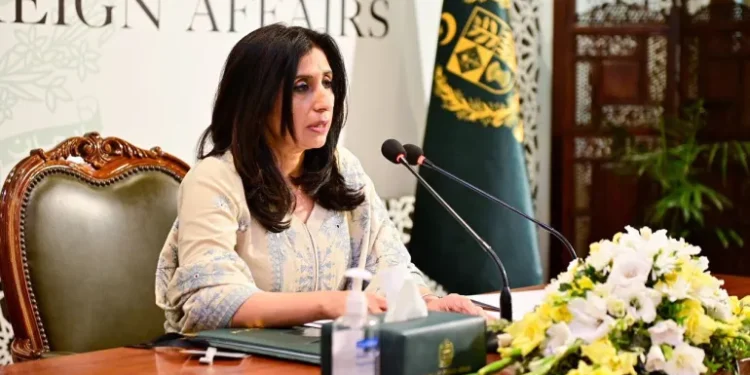Pakistan has accused the United States for allegedly “interfering” in its domestic matters after the US House of Representatives passed a resolution questioning the credibility of Pakistan’s February general election. The resolution, which calls for a comprehensive and independent investigation into purported election irregularities, was seen as a direct response to claims by former Prime Minister Imran Khan’s party, PTI, that the election was rigged against them.
Mumtaz Zahra Baloch, Pakistan’s Foreign Ministry spokesperson, emphasized the country’s commitment to constructive dialogue with the US but criticized the resolution as being neither constructive nor objective. She pointed out that the resolution’s timing and context do not align with the current positive dynamics of US-Pakistan relations.
Defence Minister Khwaja Asif also condemned the resolution, suggesting that the US should focus on ensuring the transparency of its own upcoming elections. He highlighted past US interventions in foreign governments and criticized its current support for Israel amid the conflict in Gaza.
The US House Resolution 901, introduced by Congressman Rich McCormick and co-sponsored by Congressman Daniel Kildee, urges Pakistan to uphold democratic and electoral institutions and condemns any violations of human, civil, or political rights. The resolution passed overwhelmingly, with 368 votes in favor and only seven against.
PTI welcomed the resolution, with former President Arif Alvi calling it a step in the right direction and a condemnation of the democratic process’s undermining in Pakistan. PTI had won the highest number of seats in the election but still fell short of a majority, claiming its mandate was stolen.
Analysts, including former Pakistan ambassador Maleeha Lodhi, noted that while the resolution reflects congressional concerns, it is nonbinding and does not necessitate any action from the Biden administration. The resolution serves more as a signal to the administration about Capitol Hill’s sentiments.
The resolution is unlikely to strain US-Pakistan relations significantly. Former Foreign Secretary Salman Bashir and foreign policy expert Muhammad Faisal both downplayed its potential impact, seeing it primarily as a matter of domestic US politics. Faisal also noted PTI’s inconsistent stance on the US, previously accusing it of regime changes and now seeking its support.
Mosharraf Zaidi of the think tank Tabadlab remarked that the real issues in US-Pakistan relations revolve around economics and security, not democracy. He cautioned that mishandling PTI’s grievances could pose ongoing challenges both domestically and internationally for Pakistan.
The US resolution has stirred a sharp response from Pakistan, experts believe it will not substantially alter the trajectory of US-Pakistan relations. The focus remains on mutual benefits in economic and security cooperation.
















